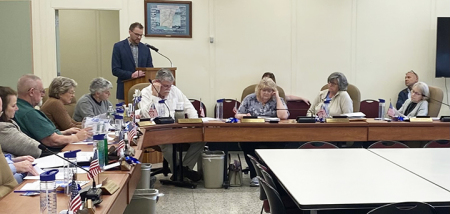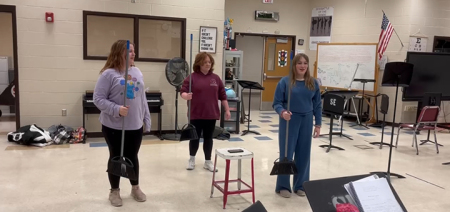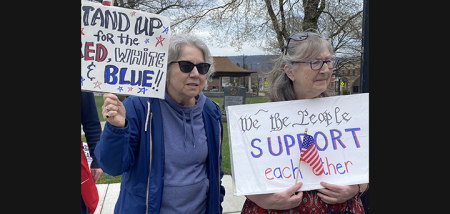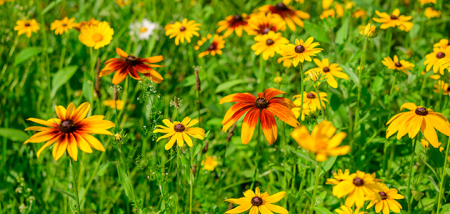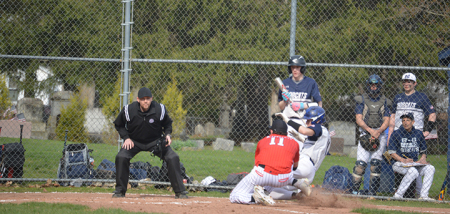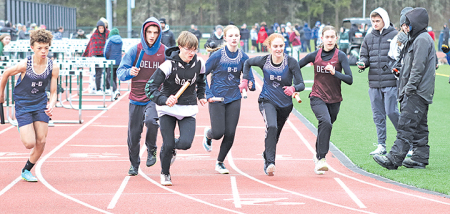Outdoor Chenango: Conservation And The Economy
Published:
August 23rd, 2023
By:
Eric Davis

What is the difference between preservation and conservation? Can you give an example of each?
These questions are commonly asked at Sportsman Education courses. I also remember getting asked this question on multiple exams as an undergraduate in the Wildlife Management program at SUNY Cobleskill. I have even been asked this question when I interviewed for various job openings in the fish and wildlife field.
Preservation is the act of managing something in a way by doing very little to nothing. Think of the root of the word, preserve. The goal of preservation is to protect nature from human use. Conservation is the protection of natural resources through active management. This means studying the resources and using various management tools to arrive at the best outcome for the resources. Regulated hunting is a common tool used in conservation. It is also worth recognizing that doing nothing is a tool used in conservation sometimes.
As already mentioned, regulated hunting is a tool used in conservation. In North America, unlike anywhere else in the world, the wildlife of the nation is considered a public resource no matter where they may live. With this notion, the government is responsible for managing these resources on behalf of the public. Under the model, the public is given access to the resources through regulated hunting.
The benefits of hunting include helping prevent disease spread by reducing high populations, providing a source of lean organic meat, and balancing human-wildlife conflict. Deer hunting helps reduce deer populations which results in over 200% fewer deer-vehicle collisions than if deer hunting was not allowed in the United States. Humans can mentally benefit directly from hunting. A 2002 study indicated that hunters ranked experiencing solitude, relaxation and relieving stress, and time to think among the most popular outcomes associated with hunting.
Hunting helps fund state wildlife agencies through excise taxes and license sales. The Federal Aid in Wildlife Restoration Act (also known as the Pittman-Robertson Act) puts an excise tax on firearms, ammunition and other hunting and shooting items that are collected from the manufacturer directly. This money is held by the Department of the Interior and is dispersed to each state using a formula based on how many hunting licenses were sold by the state as a fraction of all the licenses sold nationwide and how big the state is. It is usually close to a $3-to-$1 ratio for federal to state money. Over $12 million of hunting licenses were sold in New York for the 2022 season. In 1970, the Act was amended to provide funding for hunter education and public target ranges in addition to the original purpose of restoration of wild birds and mammals and to acquire, develop, and manage their habitats. So not only do hunters directly contribute to the conservation of game animals by buying their license, they also contribute when they purchase firearms, ammunition, archery equipment, and other hunting equipment. In 2017, $882 million were apportioned nationwide under the Pittman-Robertson Act.
Hunters also impact habitat management through the purchase of the Migratory Bird Hunting Stamp, also called the Federal Duck Stamp. In 1934, President Franklin D. Roosevelt signed the Migratory Bird Hunting Stamp Act. All waterfowl hunters who are 16 years old and older must purchase and carry a Federal Duck Stamp with them while waterfowl hunting. Out of every dollar that purchases a duck stamp, 98 cents go directly towards the purchase or lease of wetlands and wildlife habitat. Since it was passed, the Duck Stamp Act has collected over $800 million that protected over 5 million acres of habitat across the United States. Currently, the Federal Duck Stamp costs $25 and is available for purchase at United States Postal Service Offices.
There are additional economic impacts of hunting to local communities. Hunters may travel out of town to go hunting, where they will spend money on gas, food, and hotel rooms. Gun shops are always busy during the last week or two before the start of gun season. It seems that every hunter stops hunting on opening day so that they can all go to the diner for coffee at the same time! The money they spend at local businesses help pay the employees of those stores. The stores also collect sales tax, some of which goes to the local government and can end up being used to repair roads or provide other services to the community.
Author: Eric Davis - More From This Author
Comments
